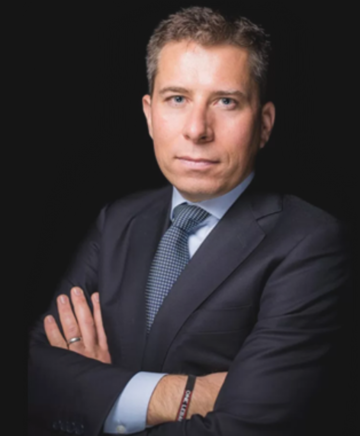
Courtesy of tomfletcher.global
Against a backdrop of stories that managed to combine world affairs and family life, Tom Fletcher CMG offered an analysis of current global trends and future challenges. Tom’s insights are informed by his distinguished career in diplomacy and foreign policy and his vision for the future of learning by his current role as Principal of Hertford College. Tom provoked discussion about diplomacy, forgiveness, and what it might mean to be a good ancestor.
Tom opened his talk by describing a sense of fragility in relation to world affairs with the triptych of Covid, the retreat from Kabul and the war in Kyiv representing shocks to global geopolitics. Coming from someone who has not only been directly involved in international peace processes and advised three UK Prime Ministers but who is well versed in global political history, it was sobering to hear Tom’s analysis of our contemporary period as one that is more fragile than any before.
Stepping back from the immediacy of global crises, Tom set out three troubling over-arching trends: the rise of distrust, inequality and the pace of technological change. The rise of distrust, as exemplified in public distrust in experts, applies more broadly to distrust in the media, in business, in healthcare providers and in government. There is a growing sense of inequality, yet the international system is doing little to address this. Finally, the pace of technological change is hard to keep up with and benefit from, and is many times more rapid than in previous eras.
In addition to an analysis of these trends, Tom set some challenges for the audience, and offered some hope for the future. Over dinner, Reubenites and their guests discussed the extent to which Oxford was contributing to or addressing inequalities, and what might make Oxford a ‘good neighbour’. These questions prompted debate about the University’s local and global relationships. There is a danger that we reproduce old divisions and inequities between ‘town and gown’ locally if people are displaced as the University develops, yet Oxford reduced global inequalities through the design, production and distribution of the Oxford AstraZeneca COVID-19 vaccine. An uncomfortable awareness of the colonial legacies of our institution and knowledge permeated our discussions, bringing us back to Tom’s belief in diplomacy as a route to co-existence.
Lessons from statecraft are pertinent for the challenges for the 21st century: the importance of having a vision and focus, engaging people in that vision and having the right plans that are adaptable in the face of new challenges. Rather than building bigger walls, lessons from diplomacy might enable us to find ways to co-exist, which requires being brave enough to forgive and make peace. In this way, we might become good ancestors.
Gemma Hughes is a Research Fellow at Reuben College and a researcher in the Interdisciplinary Research in Health Sciences Group at the Nuffield Department of Primary Care Health Sciences.